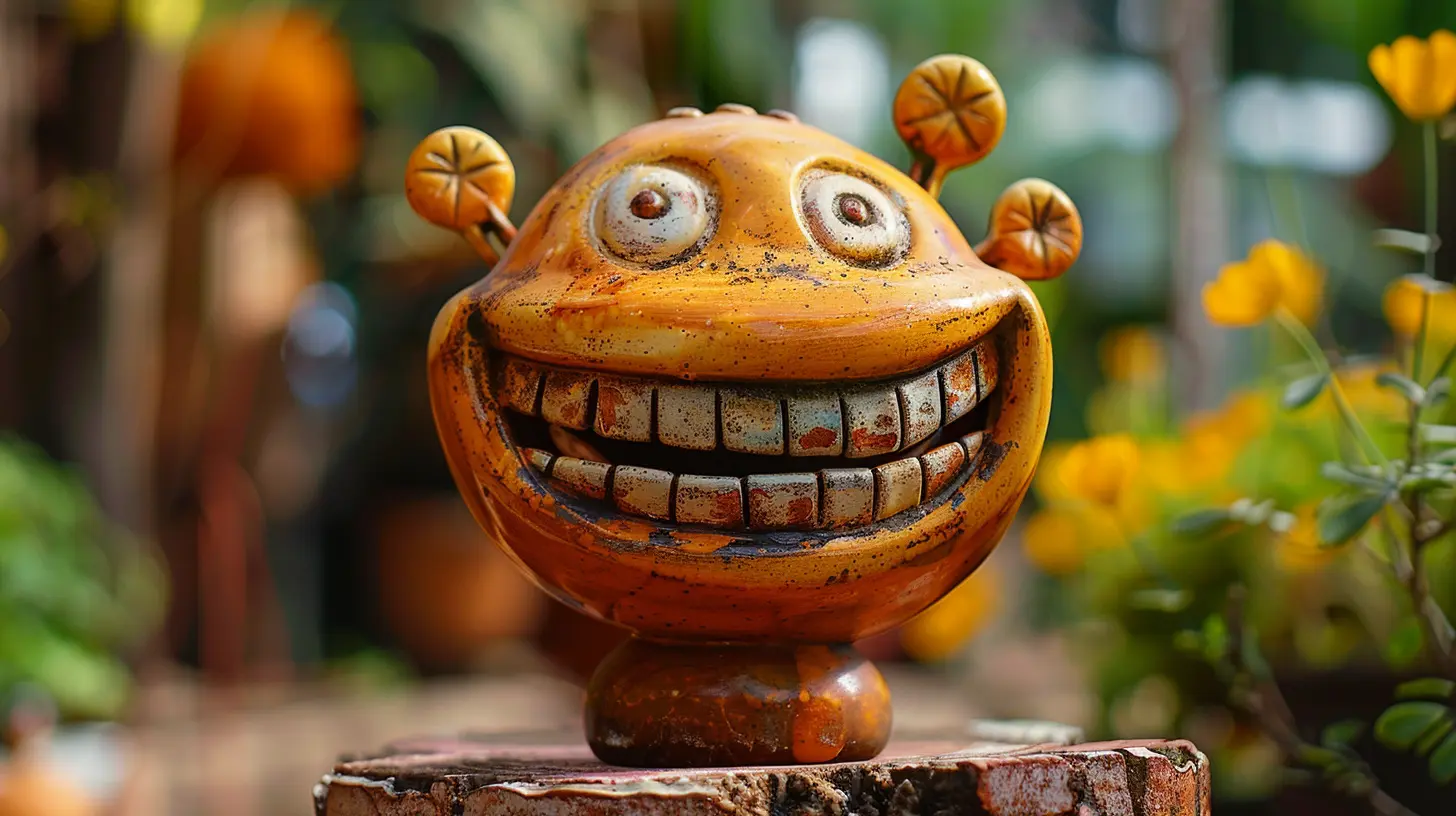23 April 2025
Have you ever noticed how a good laugh can completely turn your day around? Whether it's a hilarious meme, a witty joke from a friend, or even a funny scene in a movie, humor has an almost magical ability to lift our spirits. But did you know that humor isn't just a quick pick-me-up? It actually plays a significant role in enhancing psychological well-being.
In this article, we'll dive deep into the connection between humor and mental health, explore how humor can be a powerful tool for coping with stress, and uncover why adding more laughter to your life might just be the key to a more balanced, happy mind.

Why Humor Matters for Mental Health
Humor isn't just about cracking jokes or being the class clown. It's a complex, multifaceted psychological phenomenon that can influence our thoughts, emotions, and even our behavior in profound ways. At its core, humor is a form of emotional expression that allows us to see the lighter side of life, even in the face of adversity.The Science Behind Humor and Well-Being
Believe it or not, there's actual science that backs up the benefits of humor on our mental health. When we laugh, our brain releases a cocktail of feel-good chemicals like endorphins, dopamine, and serotonin. These neurotransmitters are often referred to as the "happiness hormones" because they contribute to feelings of joy, relaxation, and well-being.In addition to this neurochemical boost, laughter also lowers levels of cortisol, the stress hormone. This means that when you're laughing, your body's stress response is toned down, helping you feel more at ease. So, in a way, humor acts as a natural stress buster.
But that's not all. A good laugh can also improve your immune system, lower blood pressure, and even reduce physical pain. It's almost like laughter is nature's very own medicine cabinet, offering a variety of health benefits, all wrapped up in one joyful package.
Humor as a Coping Mechanism
Life can be tough, right? We all face challenges, stress, and hardships at one point or another. But how we cope with those difficulties can make all the difference. This is where humor comes into play.Humor acts as a psychological buffer, helping us manage stress more effectively. Think of it like an emotional cushion that softens the blow when life throws you a curveball. By using humor, you're able to reframe negative situations in a more positive light, making them feel less overwhelming. It's similar to putting on a pair of rose-colored glasses — the world might not actually change, but your perspective does.
For example, imagine you're stuck in traffic on your way to an important meeting. You could let the frustration get the best of you, or you could find something funny about the absurdity of the situation. Maybe you make a joke about how you're "practicing the art of patience" or pretend you're in the world's slowest race. By injecting humor into the situation, you're not ignoring the problem, but you're making it easier to handle.
Laughter as a Social Connector
Humor is also an incredible social tool. Think about the last time you shared a laugh with someone. It probably made you feel closer to that person, right? That's because laughter is a universal language that helps build bonds and strengthen relationships.When we laugh with others, we create shared experiences that foster a sense of connection and belonging. This is especially important when it comes to our psychological well-being. Humans are social creatures, and one of our deepest needs is to feel connected to others. By sharing moments of humor, we're able to strengthen those connections and enhance our overall sense of social support.
In fact, studies have shown that people who use humor in their relationships tend to have stronger, more satisfying connections with others. This is because humor allows us to communicate more effectively, break down barriers, and diffuse conflict in constructive ways. So, the next time you're in a tense situation, try lightening the mood with a well-timed joke — it might just bring you and the other person closer together.

Different Types of Humor and Their Impact on Well-Being
Not all humor is created equal. In fact, there are several different types of humor, each of which can have distinct effects on our mental health. Let's take a look at some of the most common types of humor and how they impact our psychological well-being.1. Affiliative Humor
Affiliative humor is all about bringing people together. It involves using wit and jokes to create a positive, light-hearted atmosphere and strengthen social bonds. This type of humor is typically non-offensive and inclusive, making it a great way to foster connection and enhance social well-being.People who use affiliative humor tend to have stronger relationships and are more likely to experience positive emotions like happiness and contentment. They're also better equipped to handle stress, thanks to the social support that comes from their strong connections with others.
2. Self-Enhancing Humor
Self-enhancing humor is all about maintaining a positive outlook on life, even when things go wrong. People who use self-enhancing humor are able to find humor in everyday situations, especially during times of stress or adversity. This type of humor is closely linked to resilience, as it allows individuals to stay optimistic and upbeat in the face of challenges.By using self-enhancing humor, you're able to protect your mental health and maintain a sense of emotional balance, even when life feels overwhelming. It's like having a mental "superpower" that helps you stay grounded and positive, no matter what comes your way.
3. Aggressive Humor
Aggressive humor, on the other hand, involves using sarcasm, teasing, or ridicule to make fun of others. While this type of humor might seem funny in the moment, it can actually have negative effects on both the person using it and those on the receiving end.People who rely on aggressive humor are more likely to experience conflict in their relationships and may even struggle with issues like loneliness or anxiety. This type of humor can create distance between people rather than bringing them closer together, which can ultimately harm psychological well-being.
4. Self-Defeating Humor
Self-defeating humor involves making fun of yourself in a way that puts you down or minimizes your own abilities. While some people use this type of humor as a way to cope with insecurities, it can actually be damaging to self-esteem and overall mental health.People who rely heavily on self-defeating humor may struggle with feelings of inadequacy or low self-worth. Instead of using humor to uplift themselves, they're using it to reinforce negative beliefs. Over time, this can take a toll on psychological well-being, leading to feelings of depression or anxiety.

How to Incorporate More Humor into Your Life
Now that we know just how powerful humor can be for our mental health, the big question is: How can we add more of it to our lives? Fortunately, you don't have to be a stand-up comedian to reap the benefits of humor. Here are a few simple ways to bring more laughter and joy into your everyday routine.1. Surround Yourself with Humor
One of the easiest ways to incorporate more humor into your life is to surround yourself with things that make you laugh. This could be anything from watching funny movies, reading humorous books, or following comedians on social media.By intentionally seeking out things that make you smile, you'll be regularly exposing yourself to the positive effects of humor. Plus, you'll start to develop a habit of looking for the lighter side of life, which can help you stay more optimistic and resilient in the face of challenges.
2. Find the Funny in Everyday Situations
Life is full of unexpected moments, many of which can be frustrating, confusing, or downright bizarre. Instead of letting these moments stress you out, try to find the humor in them. Whether it's a typo in an email, a spilled cup of coffee, or a miscommunication with a friend, there's almost always something funny to be found if you're willing to look for it.By training yourself to see the humor in everyday situations, you'll be able to maintain a more positive outlook on life and minimize the impact of stress.
3. Laugh at Yourself (in a Healthy Way)
While self-defeating humor can be harmful, learning to laugh at yourself in a healthy, self-accepting way can be incredibly beneficial. Instead of putting yourself down or making fun of your flaws, try to embrace your imperfections with a sense of lightheartedness.When you can laugh at your own mistakes or quirks without judgment, you'll be better equipped to handle life's ups and downs with grace and resilience. Plus, it takes the pressure off of trying to be perfect all the time — because let's face it, none of us are!
4. Share Laughter with Others
As we mentioned earlier, humor is a powerful social connector. So, why not share the gift of laughter with the people around you? Whether it's telling a funny story, sharing a meme, or making a silly comment, finding ways to make others laugh can bring joy to both you and those around you.By spreading laughter, you're not only boosting your own well-being but also contributing to the psychological health of your friends, family, and colleagues. It's a win-win!

Conclusion: Laughter Really Is the Best Medicine
At the end of the day, humor is much more than just a source of entertainment. It's a powerful tool for enhancing psychological well-being, reducing stress, and fostering social connections. By incorporating more humor into your life, you'll be giving yourself a mental and emotional boost that can help you navigate life's challenges with a smile on your face.So, the next time you're feeling overwhelmed, stressed, or just in need of a pick-me-up, remember: A good laugh might be exactly what the doctor ordered.





Ezra Long
Laughter truly heals us!
April 24, 2025 at 4:38 PM